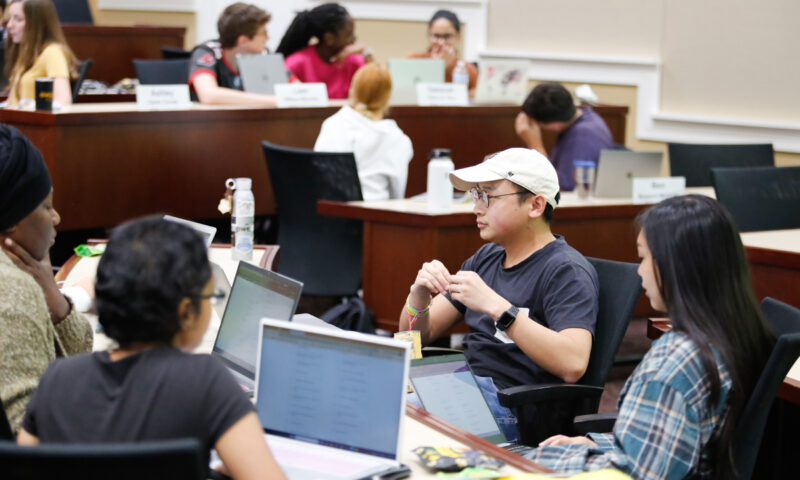By Tanvi Patel (M.S. in Accounting ’23)
Technology has integrated itself into almost every sector. Tech disruptions have led to many challenges and opportunities in accounting due to its data-driven nature. There is a massive push among organizations, especially the Big Four firms, to capitalize on analytics tools to improve the efficiency and accuracy of their services. With courses like Data Management and Analytics, Fraud and Analytics, and Financial Analytics, M.S. in Accounting (MSA) students can learn and apply data techniques to automate accounting processes.
Data Management and Analytics for Accountants
During the fall term, students are required to take the Data Management and Analytics for Accountants class as part of their core curriculum. McIntire introduced this graduate course in 2017, and Professor Yi Liang currently teaches it. This course introduces the management and use of data in business, focusing on accounting applications. It covers the fundamentals of relational database system design and querying databases using SQL. The course also provides an overview of best practices for data aggregation and emerging trends in accounting analytics. Professor Liang said he aims to give students a competitive edge professionally. He also hopes students apply these tools daily to make better personal finance and investment decisions.
A current MSA student, Nick Delis, who will be joining Deloitte’s Audit Analytics practice, shared his thoughts on the class: “Alteryx and SQL are both very relevant to the audit space at this moment. As a personal anecdote of using Alteryx, I performed an internal audit on a local, Utah-based enterprise and located over $325,000 in receivables that hadn’t been collected for over a year. I did that because I knew how to use a low-code, big-data tool. With up-and-coming technologies such as cloud networks, machine learning, and blockchain, data can be recorded at rates faster than a human can. The class teaches Alteryx and SQL, which are easy-to-use tools for people who don’t study computer science, like auditors, for instance, to effectively interpret the volume, velocity, and variety of big data.”
We started the semester by learning advanced Excel functions, which helped us use macros to automate the random sampling process by the end of the course. Then we learned how to organize, analyze, and process data by designing ERD diagrams and using relational schema. We also focused on querying using SQL. It is a standard computer language for relational database management and data manipulation. For our semesterlong project, each group solved an internal business problem by building a comprehensive relational database, writing SQL codes to store data, creating insightful infographics using Tableau, and writing a report. Professor Liang guided us in every step to ensure we understood what we were solving for.
This course has been helpful for someone like me who needs more data analytics experience. Now, my classmates and I feel more confident handling large data sets.



